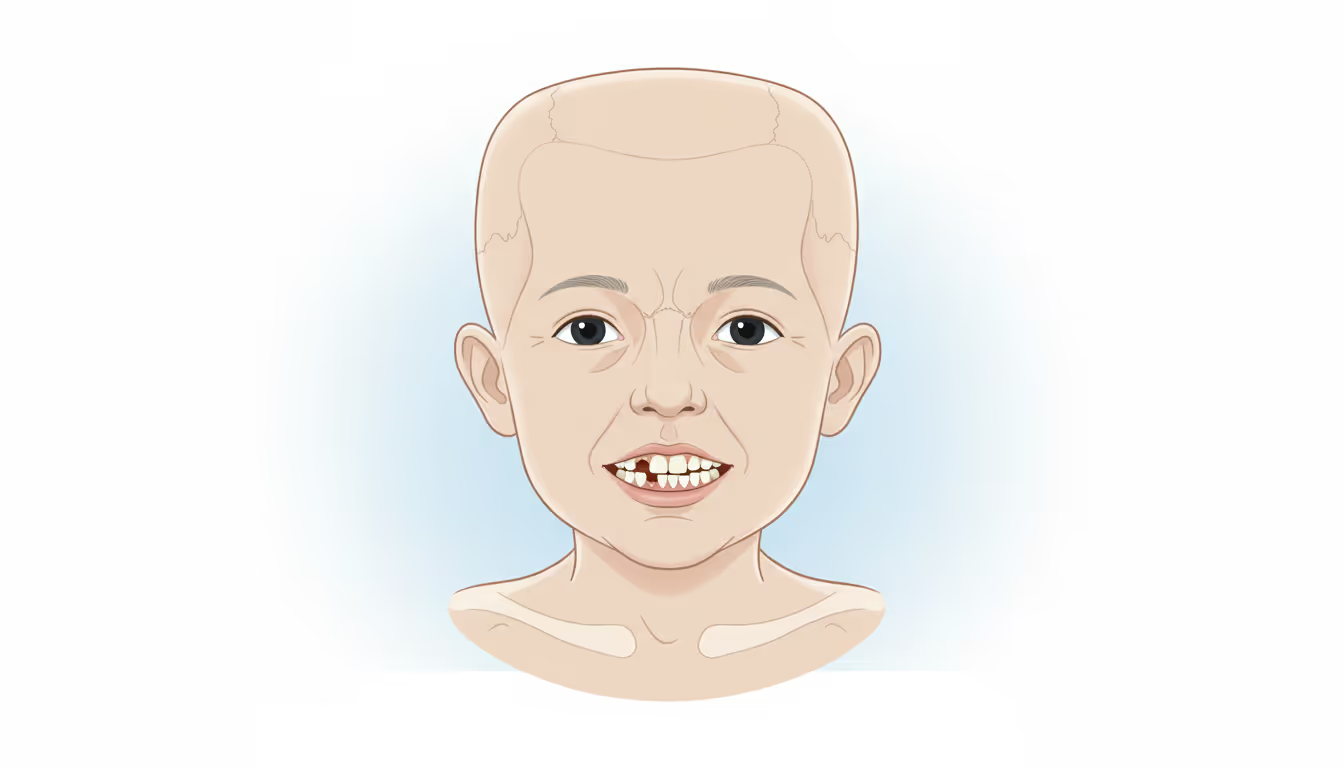
Cleidocranial dysostosis (CCD) is a genetic disorder affecting bone development. It is characterized by underdeveloped or missing collarbones, allowing children with this condition to bring their shoulders close together. Other common features include a square-shaped skull, delayed closure of skull sutures and fontanels (soft spots), a low nasal bridge, late tooth eruption, and irregular permanent teeth. This disorder is inherited in an autosomal dominant fashion, meaning that a parent with CCD has a 50% chance of passing it on to each child, regardless of gender. The gene responsible, located on chromosome 6 at band p21, is CBFA1 (core-binding factor alpha subunit 1). Mutations in this gene lead to CCD. Interestingly, a potential case of CCD has been identified in the remains of a Neanderthal.




